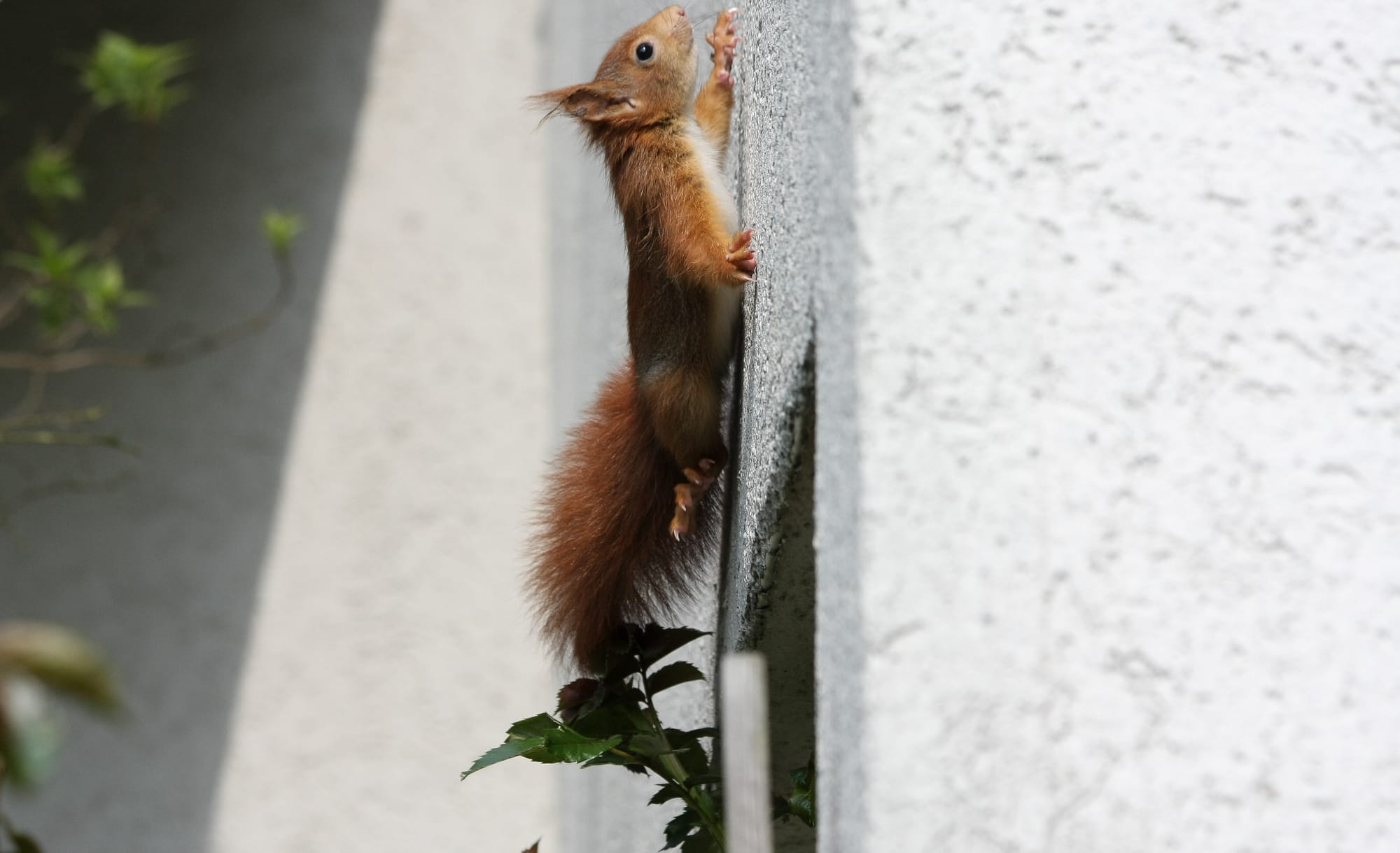As the temperatures drop this winter, you may have to worry about pests invading your home. After all, many pests don’t hibernate.
 Photo by: Shutterstock
Photo by: Shutterstock
But what about squirrels? What do they do in the winter? And do you have to worry about finding squirrels in the attic or crawl spaces?
Do Squirrels Hibernate?
If you look outside the window during cooler months, you’ll probably notice that you don’t see a lot of squirrel activity. Therefore, it’s natural to assume that squirrels hibernate. While most ground squirrels, like the groundhog, are hibernators, tree squirrels are active throughout the entire year. Two of the most common species — the eastern gray squirrel and the fox squirrel — may even breed in wintertime.
So why don’t you see tree squirrels as often in the winter? Well, they don’t like being out in blustery weather any more than you do. So they’ll stick to their nests, which to you may look like nothing more than clumps of dried leaves and twigs in tree branches or holes in tree trunks.
Even though squirrels do not hibernate, they do spend most of the warmer months fattening up for the winter and storing food. In most cases, squirrels will not leave their dens if the temperature is below freezing or if it’s sleeting or snowing. Accumulating extra body fat means they don’t have to venture out in these conditions on a routine basis. However, if you watch closely, you may still see the occasional squirrel out retrieving food from one of its stores.
How Do People End Up with Squirrels in the Attic?
There are several reasons why someone might find squirrels in the attic or in crawl spaces during winter months, including mating seasons, increased numbers of predators, decreased habitat in which to build dens or even just the cold temperatures.
However, there are some things you can do to make your house less inviting to squirrels looking for winter homes:
- Clean your gutters of acorns, nuts, pinecone and leaves to encourage squirrels to stay in trees. Additionally, keep ivy and tree branches trimmed away from your house.
- Identify any possible entry points around your home and seal them all, unless you suspect there’s a squirrel in your home. In that case, you should leave one entrance open so that the squirrel can come and go. (And, hopefully, stay gone.) If you accidentally trap it in your home, it could die. That’s a smell and process you don’t want to deal with.
- Work with a professional from a company like Terminix® to establish a wildlife removal and prevention plan.
When to Call a Wildlife Removal Professional
Although typically seen as non-threatening, squirrels are still wild animals. While you could seal up all access points — save one — and wait for the squirrels to remove themselves, you might be waiting for a long time. This is especially true if squirrels in the attic have recently given birth to a winter litter. So if you hear them scurrying around in your attic, crawl spaces or vents, you’ll want to call a wildlife removal company so that a trained technician can help you with your bushy-tailed problems.
Wondering what other pests may try to ride out the winter in your home? Make sure you’re in the know when it comes to the cold-weather habits of creatures like rats, mice and raccoons.
Sources:
/pest-control/squirrels/removal/squirrels-in-attic/
/pest-control/squirrels/habitat/do-squirrels-hibernate/
http://animals.nationalgeographic.com/animals/mammals/squirrel/
http://voices.nationalgeographic.com/2014/09/26/squirrels-animals-fall-winter-science-united-states-surprising-facts/



